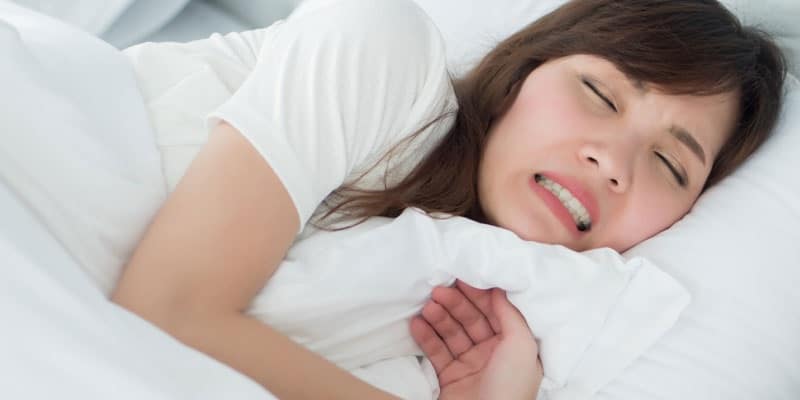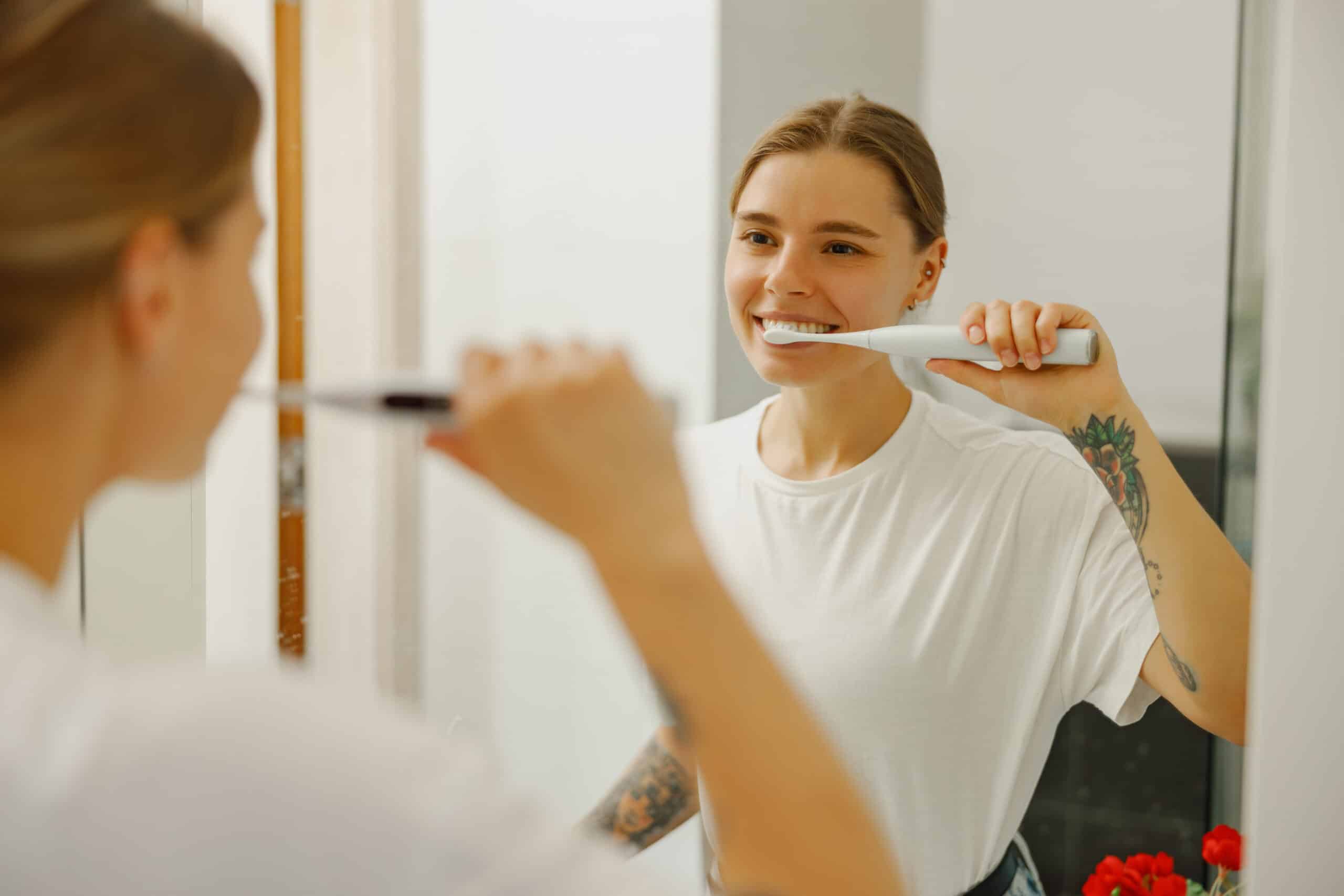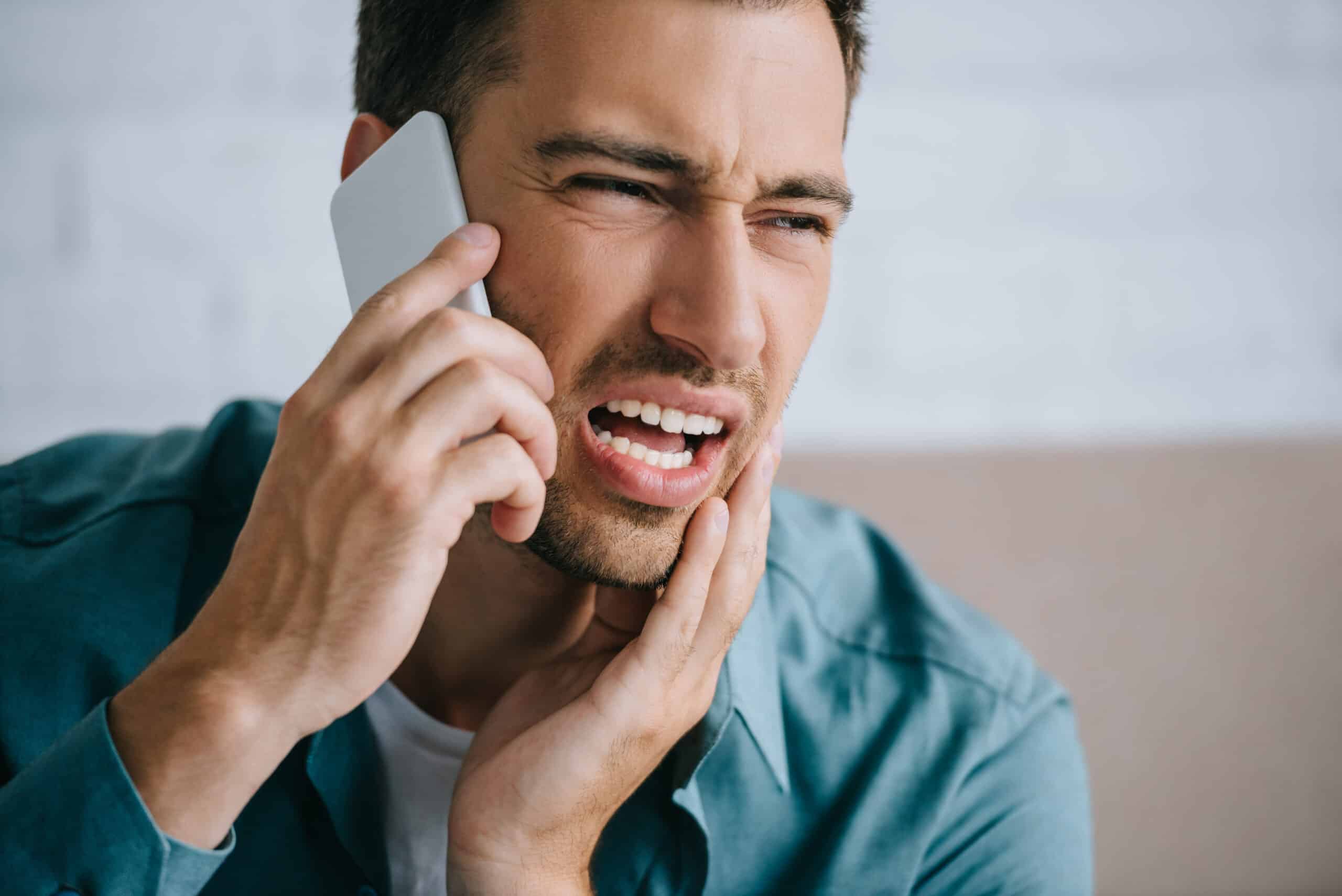2020 has certainly brought us our share of stress, a large part of which was triggered by the COVID-19 pandemic. From adjusting to new public health protocols, potential job losses, changing routines, and the constant barrage of information from both traditional and social media, it’s no surprise that people are experiencing more anxiety than ever before.
Anxiety is also a contributing factor to a condition known as bruxism, which is the clinical term for grinding, gnashing, or clenching your teeth. Bruxism may cause you to unconsciously clench or grind your teeth while you’re awake (awake bruxism), or grind them in your sleep (sleep bruxism). People who suffer from sleep bruxism are at a high risk for having other sleep disorders, such as sleep apnea.
Many cases of mild bruxism don’t require any treatment. However, frequent and severe cases can lead to headaches, damaged teeth, pain in your jaw (temporomandibular joints), and other conditions.
What causes bruxism?
Although medical science isn’t exactly sure what leads to bruxism, there are several risk factors that can increase the risk of grinding your teeth, including:
- Anxiety/panic attacks: Anxiety, stress, and fear can result in teeth grinding as a response, as can anger, frustration, and other strong, negative emotions
- Personality: If you’re an aggressive, hyperactive, or competitive type, your risk of bruxism can increase
- Genealogy: If people in your family have a history of bruxism, chances are you might too
- Age: Bruxism can happen at any age, but is more common in young children and tends to stop in adulthood
- Medications: Certain medications, such as antidepressants, can trigger teeth grinding as a side effect
- Lifestyle habits: Smoking, using recreational drugs, drinking alcohol, or consuming caffeinated beverages can lead to bruxism
- Health disorders: Conditions such as dementia, epilepsy, gastroesophageal reflux disorder (GERD), Parkinson’s disease, untreated sleep apnea/loud snoring/, and attention-deficit/hyperactivity disorder (ADHD) can all be associated with bruxism
Even if none of the above apply to you, it’s important to know the signs of bruxism so you can seek prompt treatment from your dentist.
Bruxism symptoms: What to look for
Unless your sleep partner has been waking you up due the noise of your teeth grinding, you might not be aware that you have bruxism until you start showing symptoms, which can include:
- Headaches
- Jaw pain, or painful face, ears, or teeth
- Teeth that look worn down or flat
- Worn tooth enamel
- Cracked, damaged, or loose teeth
- Broken crowns or fillings
- Tight jaw muscles, clicking jaw, or a locked jaw that doesn’t open or close properly
- Sore inner cheeks
- Interrupted sleep
Untreated bruxism can lead to chronic headache and ear pain, facial muscle enlargement, and further damage to your teeth, gums, and jaw.
If you are showing any of these symptoms, you should make an appointment with your dentist for an examination, diagnosis, and treatment.
Protecting your oral health from teeth grinding
During your routine dental checkup, your dentist examines your teeth, gums, and jaw for signs of any oral abnormalities, including those associated with bruxism. If you grind and clench your teeth, or complain about the above symptoms, your dentist might check for:
- Tenderness in your jaw tissue
- Broken, cracked, worn down, or damaged teeth
- Erosion your tooth’s underlying bone
- Damage to the inside of your cheeks from chewing
If your dentist determines that you do have bruxism, they will discuss all of the treatment options available to you, depending on the severity of your condition. This could include monitoring the effects of your teeth grinding over time, especially if you are experiencing tooth pain that affects your ability to chew food properly.
Some of the treatments your dentist might recommend include:
- Splints and mouth guards for bruxism: These resin-based tools are made from exact casts of your teeth, and are worn to help keep your teeth separated and safe from the effects of grinding and clenching your teeth
- Dental crowns: Bruxism can cause cracked teeth, which can be repaired with dental crowns to protect your tooth from further damage
- Periodontics (gum treatment): Teeth grinding can cause your gums, teeth, and supporting tissue to weaken, leading to gum disease that your dentist can fix with periodontal treatment
In the meantime, there are plenty of lifestyle strategies you can employ to help reduce teeth grinding, especially if the condition is anxiety-related to outside stressors, including COVID-19.
How to stop teeth grinding from stress
We already know that it’s crucial to protect ourselves against the COVID-19 virus, but it’s also important to ensure we properly manage our stress response to it to safeguard our overall well-being.
Try these stress reduction techniques that help you reduce the anxiety that can lead to bruxism:
- Meditation: This ancient technique might take some practice, but it can also be very effective at relieving stress, anxiety, depression, and even pain
- Yoga: Yoga is a moving meditation that is not only be a potent stressbuster, but also provides a physical workout
- Exercise: Whether you lift weights, practice extreme cardio, or simply go for a walk, exercise produces endorphins that help promote positivity
- Talk therapy: Seeking support from a therapist, counsellor, or trusted friend can help relieve anxiety you’re feeling over the pandemic or other concerns
- Avoid media: Take a break from the news and social media for a while and focus on more positive pursuits that will bring you peace of mind
- Manage sleep routines: Avoiding caffeinated beverages and alcohol before bed, as well as having a warm bath at night time, can help you relax and have a better night’s sleep
Be sure to talk to your dentist about other strategies you can use to combat the oral health effects of bruxism, so you can preserve your oral and show off your big, beautiful smile with confidence!
Discover what causes bruxism and which treatments are available at Yonge Eglinton Dental in Toronto
If you grind your teeth, our dental team can help you discover what causes bruxism and how we can help you protect your beautiful smile. Give Yonge Eglinton Dental a call today at 416-932-2222 or book an appointment online. We’ll be happy to see you!
Concerned about visiting the dentist? Read about how we protect the health and safety of our patients and staff so your family can seek proper dental care with peace of mind.








